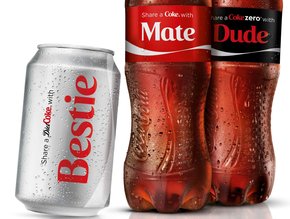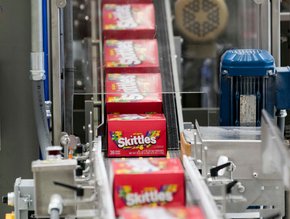Danone boss demands higher taxes on fat, sugar and salt

James Mayer, President of Danone UK & Ireland, has said that the UK government should consider taxing products high in fat, sugar or salt to further combat the so-called “obesity crisis.” These comments mark the first time a major food company has called for urgent government action in response to rising obesity rates.
Danone UK & Ireland, which is well-known for selling the Actimel yoghurt brand, has stated that government intervention is necessary to ensure consumers are offered healthier products. As first reported by The Observer, Danone said that some UK food firms have not shown “enough appetite to change.”
“Meaningful intervention from the government is a necessary course of action”
The Health Survey for England 2021 estimated that 25.9% of adults in England are obese, with a further 37.9% being overweight, reporting a 64% total. This news comes in the wake of multiple studies being conducted concerning the impact of high sugar, salt or fat products (HFSS), as well as the negative implications of ultra-processed foods.
James Mayer of Danone stated, as reported by The Observer that: “The UK food industry’s efforts to improve the health profile of its products have not moved fast enough.
“We’ve reached a point where meaningful intervention from the government is a necessary course of action.”
In his statement, Mayer advocated for an increase in funding for local councils to enforce rules on HFSS products by advertising restrictions on HFSS foods, for example.
In April 2023, Danone launched “commitments on health,” including a pledge to “never produce a product for children” which is higher in sugar, salt or fat than UK guidance recommends. Through this, the company has hope that its initiative will encourage other companies to further raise health standards in the UK and Ireland food and drinks sector.
It has also pledged that at least 90% of its portfolio of products by sales volume would not be HFSS and said it would assess front-of-pack nutritional labelling.
Mayer added: “It is time for the government to move from a policy that favours caution to one that sets clear parameters for the industry and consumers as to what constitutes a healthy product.
“We see this as the only way industry as a whole will be incentivised to move towards healthier, more sustainable products. This is likely to involve moving faster on food and beverage data sharing and transparency, finally introducing restrictions on advertising of products [high in fat, sugar or salt] and looking at how VAT rates can be aligned to the health credentials of products.”
UK food organisations cite ineffective food regulations
Currently, most groceries are exempt from VAT. Danone has stated that it does not want shopping costs to rise, but has said that the government should consider if VAT could be imposed on more products that are high in fat, sugar or salt.
Plenty of food and drink companies have been criticised for not implementing changes sooner. In particular, Nestlé was recently condemned over the launch of its KitKat breakfast cereal, containing nearly 25% sugar.
On this announcement, The Food Foundation stated that: “The Government’s 2020 obesity strategy, which included measures to limit the advertising and promotion of highly processed sugary foods should have been implemented in full. Instead, rates of diet-related disease continue to grow unchecked.
“Nestlé risks investing millions in product lines that a future government will be forced, in the face of overwhelming evidence, to take action against.”
A Nestlé spokesperson previously told The Observer it had worked hard to ensure 84% of its UK cereal portfolio was non-HFSS, and it now reported the nutritional value of its entire global product range.
The company also stated: “We have also been consistent that we are open to the idea of effective regulation in the UK that drives proper innovation in our sector and has the desired health outcomes that we all wish to see.”






